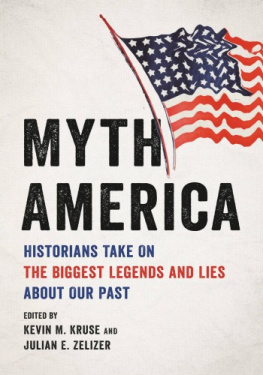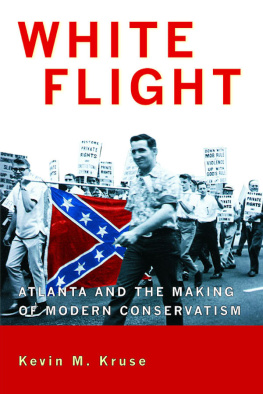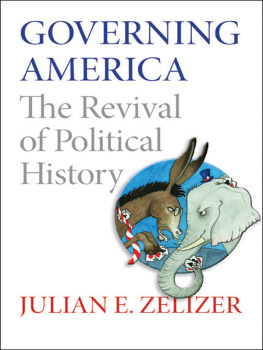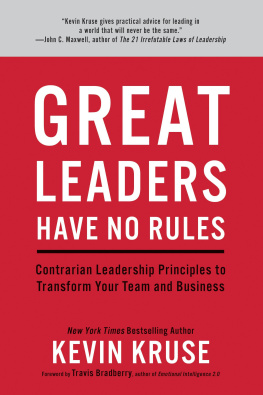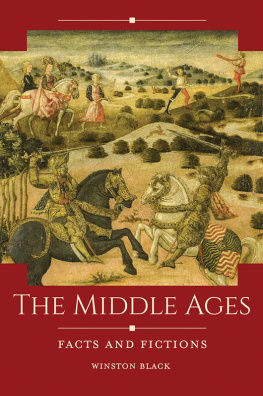Copyright 2022 by Kevin M. Kruse, Julian E. Zelizer
Cover Design by Chin-Yee Lai
Cover images: Library of Congress, Music Division; MaxyM / Shutterstock.com
Cover copyright 2022 by Hachette Book Group, Inc.
Hachette Book Group supports the right to free expression and the value of copyright. The purpose of copyright is to encourage writers and artists to produce the creative works that enrich our culture.
The scanning, uploading, and distribution of this book without permission is a theft of the authors intellectual property. If you would like permission to use material from the book (other than for review purposes), please contact permissions@hbgusa.com. Thank you for your support of the authors rights.
Basic Books
Hachette Book Group
1290 Avenue of the Americas, New York, NY 10104
www.basicbooks.com
First Edition: October 2022
Published by Basic Books, an imprint of Perseus Books, LLC, a subsidiary of Hachette Book Group, Inc. The Basic Books name and logo is a trademark of the Hachette Book Group.
The Hachette Speakers Bureau provides a wide range of authors for speaking events. To find out more, go to www.hachettespeakersbureau.com or call (866) 376-6591.
The publisher is not responsible for websites (or their content) that are not owned by the publisher.
Library of Congress Cataloging-in-Publication Data
Names: Kruse, Kevin Michael, 1972 editor. | Zelizer, Julian E., editor. Title: Myth America : historians take on the biggest legends and lies about our past / edited by Kevin M. Kruse, Julian E. Zelizer. Description: First edition. | New York : Basic Books, 2022. | Includes bibliographical references and index. Identifiers: LCCN 2022001566 | ISBN 9781541601390 (hardcover) | ISBN 9781541601406 (ebook) Subjects: LCSH: United StatesHistoryErrors, inventions, etc. | United StatesHistoriography. Classification: LCC E179 .M993 2022 | DDC 973dc23/eng/20220519
LC record available at https://lccn.loc.gov/2022001566
ISBNs: 9781541601390 (hardcover), 9781541601406 (ebook)
E3-20221122-JV-NF-ORI
CONTENTS
To the archivists, librarians, teachers, and fellow historians who give us a better, and more accurate, understanding of our nations past.
Explore book giveaways, sneak peeks, deals, and more.
Tap here to learn more.
W E LIVE IN THE AGE OF DISINFORMATION.
To be sure, there have always been lies in our public discourse. But in the last few years the floodgates have opened wide, and the line between fact and fiction has become increasingly blurred if not completely erased. Unlike past eras in which myths and misunderstandings have clouded our national debate, the current crisis stands apart both for the degree of disinformation and for the deliberateness with which it has been spread.
Crises never have a single cause, but in this instance a good deal of blame can be attributed to the political campaigns and presidency of Donald Trump. His administration thrived on deceptions and distortions, reframing its own lies as alternative facts. The fire hose of falsehoods coming from the Trump White House was so pronounced that the Washington Post launched a database tracking them all, accounting for more than thirty thousand instances in the end. The Trump administrations long-running war on the truth culminated with a massive campaign to discredit the 2020 election and a violent insurrection at the United States Capitol designed to stop the certification of the results. This may have been, as critics charged, the big lie, but it was only one of many.
The Trump presidency pushed the country to this crisis point, but it was able to do so only because of two large-scale changes that have in recent years given right-wing myths a huge platform and an accordingly large impact on American life.
The first major development was the creation of the conservative media ecosystem, which ranges today from cable news networks such as Fox News, Newsmax, and One America News to websites such as Breitbart. Unlike the network news programs of the so-called mainstream media, which placed great emphasis on an evenhanded approach that hewed to objective facts and eschewed editorializing, these new outlets have taken a different tack. Abandoning the old broadcast television approach of the postWorld War II era, they instead embraced a narrowcast model of the cable age, one that seeks to echo the partisan point of view of a carefully cultivated target audience and to amplify their assumptions back to them. Engaging and enraging viewers became the primary aim, it seems, not any conventional journalistic commitment to the truth. (Indeed, when its popular host Tucker Carlson was sued for slander, Fox News, own lawyers argued that Carlsons on-air statements cannot reasonably be interpreted as facts because the show clearly engages in exaggeration and non-literal commentary.) Importantly, the conservative media ecosystem was augmented by the even more wide-open world of social media, especially Facebook, Twitter, and Reddit, where the tendency to find like-minded partisans and the freedom from fact-checkers took disinformation to new depths. Taken together, these venues have given far-right lies unprecedented access to significant numbers of Americans and, just as important, let ordinary Americans spread lies to one another as well. As a result, misinformation and disinformation have infused our debates about almost every pertinent political question.
The second significant change, related to the first, is the devolution of the Republican Partys commitment to truth. All political parties, by their very need to pull in voters and push them to the polls, have long engaged in various versions of political spin, privileging selective evidence and occasional outright lies. But, until recently, Republicans fashioned themselves as realists who would keep the irrational idealism of Democrats in check. Despite his own record of drifting away from facts in ways big and small, President Ronald Reagan took pride in presenting his brand of conservatism as one committed to clear-eyed truths. It isnt so much that liberals are ignorant, he liked to say. Its just that they know so many things that arent so.
Within a generation of the Reagan era, however, Republicans self-image as realists respecting hard facts had taken a beating. Remember Republicans? the screenwriter and Bush-era blogger John Rogers asked in 2004. Sober men in suits, pipes, whod nod thoughtfully over their latest tract on market-driven fiscal conservatism while grinding out the numbers on rocket science. How did they become the party of fairy dust and make believe? How did they become the anti-science guys? The anti-fact guys? The anti-logic guys ?
During the Obama era, out-of-power Republicans felt freer to criticize what the administration was doing and craft fantastical complaints about what it was not. They propagated wild conspiracies about the existence of death panels in the Affordable Care Act and spread claims that the program would provide coverage to undocumented immigrants.
The current war on truth has unfolded along multiple fronts. The fields of science, medicine, law, and public policy, among others, have been the subject of sustained assaults. But history too has come under attack, and for obvious reasons. As George Orwell famously observed in his dystopian novel 1984 , Who controls the past controls the future.
Claims about what happened before are, in some sense, claims about what can or cannot happen again. But such claims can be misleading and even malignant. In their classic work Thinking in Time , Ernest May and Richard Neustadt explored the ways in which clumsy misapplications of history can create catastrophes in public policy as the lessons of the past become limitations on the present, or worse.
Next page
